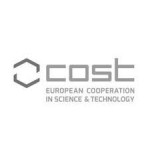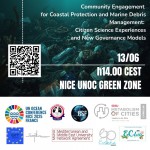Diana Potjomkina, UNU-CRIS PhD Fellow, conducts Research at the WTO Public Forum 2018, Geneva

Diana Potjomkina, PhD Research Fellow, conducts Research at the WTO Public Forum 2018 in Geneva.
In a rapidly changing world, how can countries ensure that trade continues to contribute to jobs, growth and sustainable development, particularly in the context of the Sustainable Development Goals under the 2030 Agenda? How can trade and efforts to address environmental problems complement one another in order to contribute towards a sustainable future? Change brought about by technology and the pace at which this change is occurring has been both beneficial and challenging. Whether it is perceived as beneficial or not - technology will continue to evolve and alter the way we communicate, work, do business and trade. For businesses, it has been beneficial for those that have been able to take advantage of the opportunities to connect to new markets, but challenging for those who do not have access to the infrastructure or tools to do so. What is important is to better understand what these technological changes mean for the future – particularly for trade. How can we ensure that technology enables trade? What are the trade implications of innovations such as artificial intelligence, 3D printing, or blockchain and how will these affect the way we trade in the future? As trade evolves, how can we ensure that it becomes more inclusive, not less? How can new technologies and the pursuit of sustainable trade address inequality and provide an opportunity for every country – developed or least-developed; every business - big or small; every Member of society – male and female, young and old; to reap the benefits of trade in 2030.
The Public Forum offers an opportunity for policy makers and representatives of government, business, workers, consumers, civil society and others to discuss how these emerging developments will affect trade and the multilateral trading system, and how we can ensure that trade in 2030 will continue to help us address the major issues facing our economies and societies.
All further relevant information can be consulted here.




